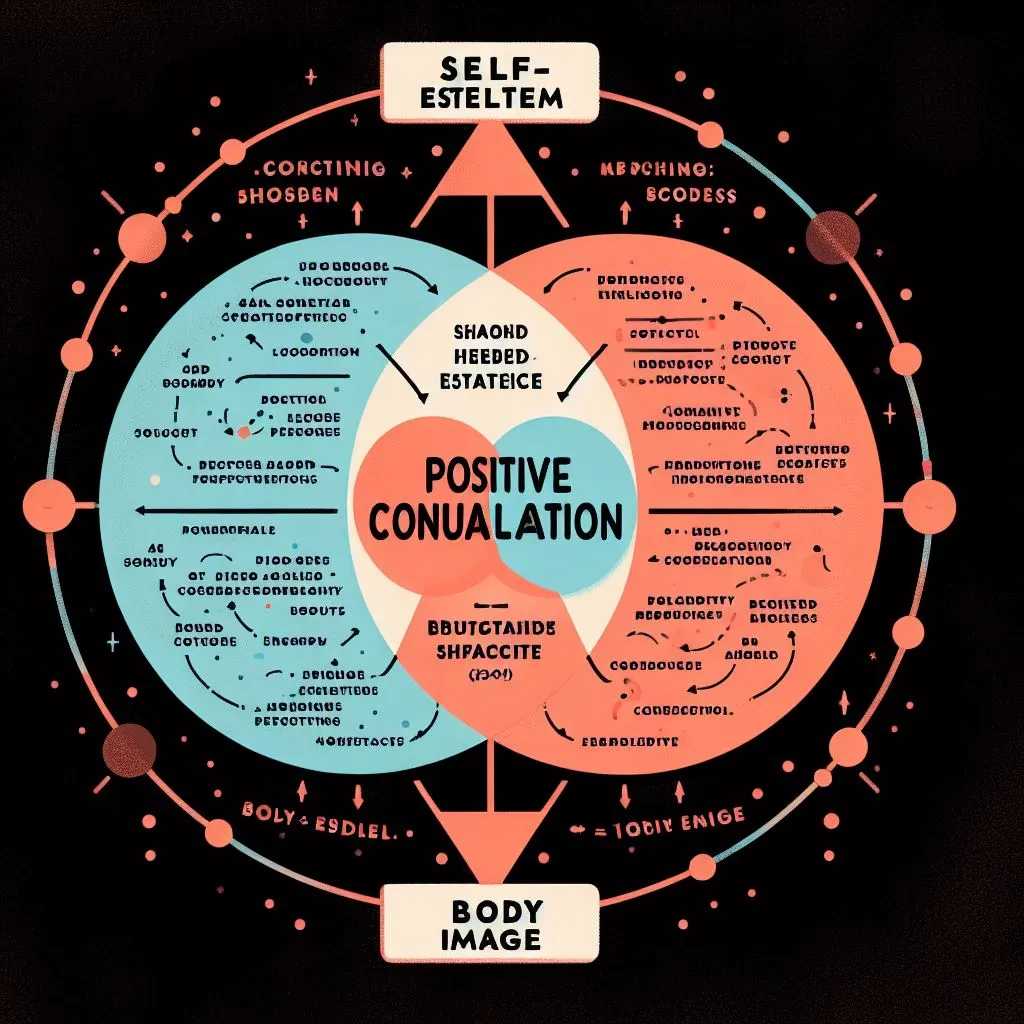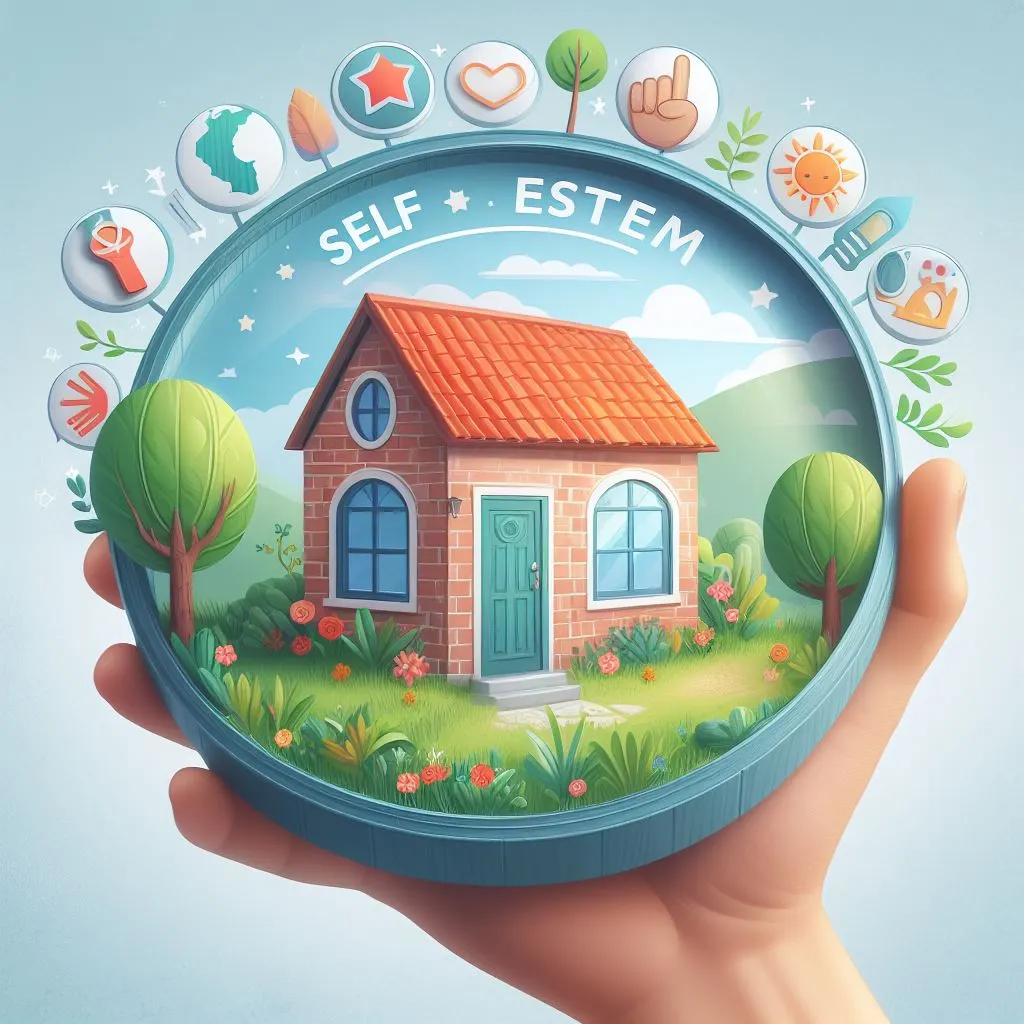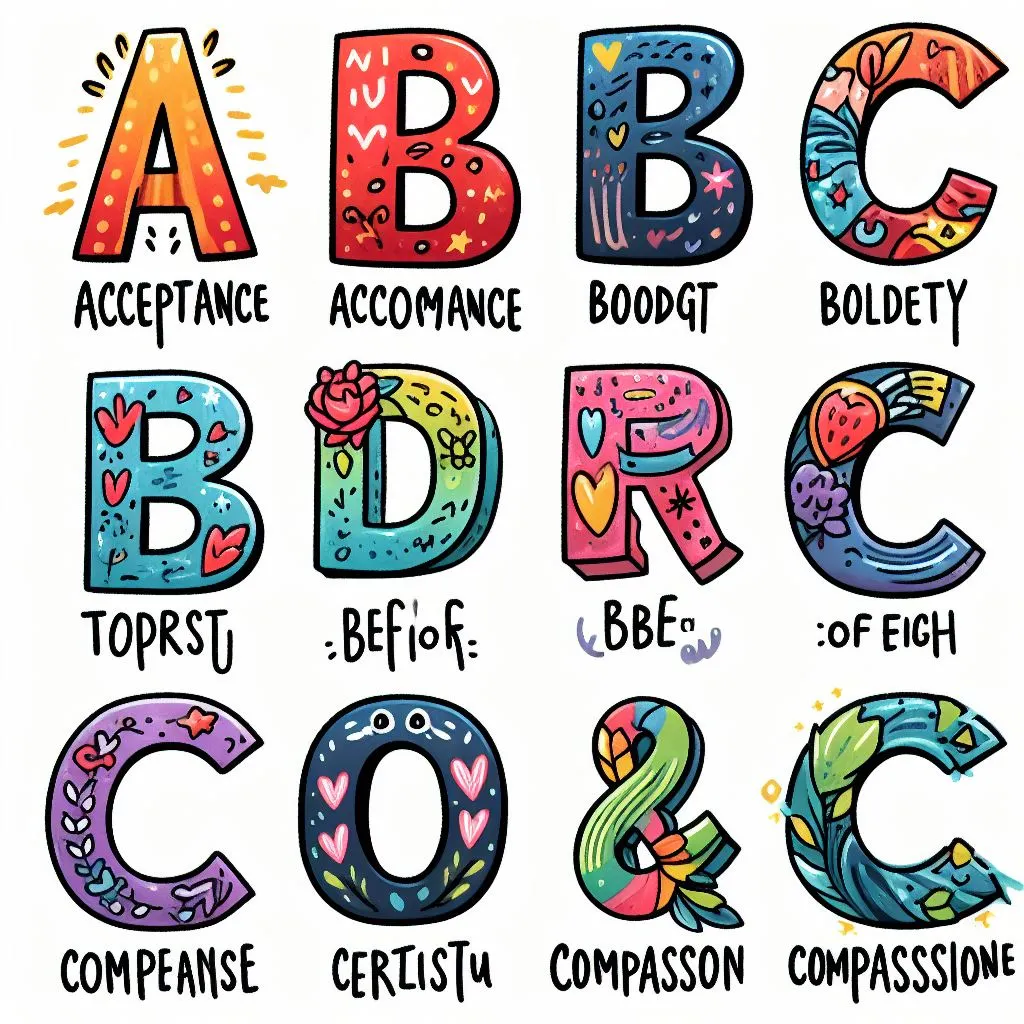Self-esteem and Positive Body Image
Self-esteem and body image share a complex and intertwined relationship, often described as bidirectional. Numerous studies show that how we feel about our appearance directly impacts our self-worth and confidence. So it’s important to cultivate positive attitudes in both domains to enjoy better mental health and well-being.
Self Esteem
Self-esteem refers to our overall subjective emotional evaluation of our own worth. It encompasses whether we believe we are worthy, competent individuals deserving of happiness and respect. Body image, meanwhile, describes our perceptions and attitudes regarding our physical appearance. Both play crucial roles in our psychological functioning and quality of life.
Research indicates self-esteem and body image typically share a reciprocal relationship. How we feel about our looks directly influences our self-esteem, yet our baseline self-esteem also determines how we feel about and respond to our body. Those with high self-worth tend to have a more positive and accepting body image. They are less likely to internalize unrealistic sociocultural ideals that few can attain. On the flip side, people who are unhappy with their appearance often have lower self-esteem as a result.
“You’re the product of 4.5 billion years of evolutionary success. You have survived everything nature has thrown at you so far, so you’re obviously pretty special. Every person deserves to feel that way.” – Matthew Hussey
This interplay begins early. One study examined over 500 girls ages 10 to 15 and found that greater concerns about weight and shape at the outset predicted lower self-esteem two years later (Smolak, 2004). Another analyzed data from over 17,000 adolescents and discovered that body dissatisfaction significantly predicted depression, poor self-esteem and disordered eating both cross-sectionally and longitudinally (Eisenberg, et. al., 2005).
Body Image
Clearly, a positive body image lays the groundwork for robust self-esteem as we mature. Appreciating our bodies for what they allow us to experience and do, rather than constantly criticizing perceived flaws, fosters self-acceptance from an early age. It helps insulate us from the ups and downs of societal opinion.
Our self-esteem also affects how we experience and react to our bodies. Those with low self-worth tend to be much harsher self-critics, magnifying flaws and believing others judge them as harshly too. This negative self-focus becomes a self-fulfilling prophecy, confirming their preexisting feelings of inadequacy. But people confident in their inherent worth are able to be kinder to themselves despite imperfections. They do not derive their value from appearances alone.
“We are not defined by our weight, our size, our hair colour, whether we have acne or not. We are defined by our character and our values, by how we treat others and make them feel.” – Dove Self-Esteem Project
Interestingly, research indicates this relationship between self-esteem and body image also exists cross-culturally. A meta-analysis of 91 studies from 23 countries found a moderate association between the two constructs universally (Wertheim & Paxton, 2011). While certain cultures may emphasize different physical ideals, low self-worth predisposes individuals everywhere to be harsher judges of their looks relative to those cultures’ standards.
So in summary, numerous psychological studies show self-esteem and body image share a reciprocal relationship – how we feel about our appearance directly impacts our self-worth, and our underlying self-esteem also determines how we experience our body. A positive body image lays the foundation for robust self-confidence as we mature. And vice versa – loving ourselves despite flaws protects our body image from being determined by others’ opinions or temporary shortcomings. Overall, cultivating acceptance and appreciation for both our inner qualities and outward package is key for well-being.
The Relationship Between Self-Esteem and Body Image
To directly answer the question – research indicates self-esteem and body image are said to have a reciprocal relationship. How we feel about our appearance (body image) directly influences our self-worth or self-esteem, yet our underlying level of self-esteem also determines how we experience and perceive our body and physical attractiveness.
People with high self-esteem tend to have a more positive and accepting body image. They are less likely to derive their self-worth primarily from how they look or compare themselves to unrealistic societal ideals of beauty. Those with low self-esteem, on the other hand, are at greater risk of internalizing those narrow standards and adopting harshly critical perspectives of their own appearance due to feelings of inadequacy in other domains. A negative body image then exacerbates and confirms preexisting low self-esteem in a vicious cycle.
Overall, numerous psychological studies point to the conclusion that self-esteem and body image share a reciprocal relationship where one influences the other and vice versa. Maintaining positive self-worth helps nourish a kinder inner dialogue about our looks, while cultivating acceptance of our bodies as they are fosters robust self-confidence that is resilient to superficial ups and downs. The takeaway is both must be prioritized for optimal mental health and wellness.




I’m really inspired with your writing talents as neatly as with the structure for your blog. Is that this a paid theme or did you modify it your self? Either way keep up the excellent quality writing, it’s rare to look a nice blog like this one today..
i forget it. i did not modify its theme default.